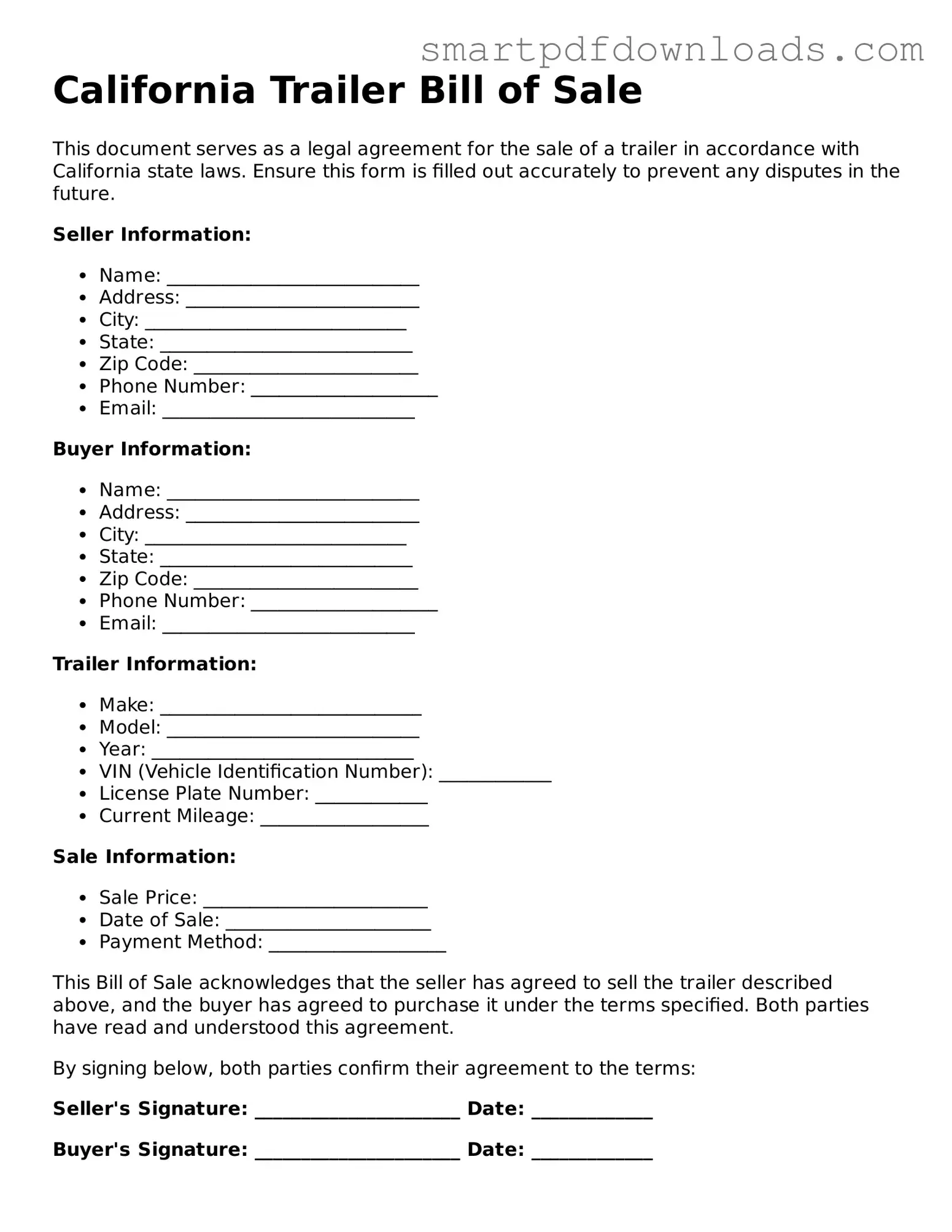Legal Trailer Bill of Sale Form for the State of California
The California Trailer Bill of Sale form serves as a legal document that records the transfer of ownership for a trailer between a seller and a buyer. This form is essential for ensuring that both parties have a clear understanding of the sale terms and for facilitating the registration process with the Department of Motor Vehicles. Understanding its components can help streamline the transaction and protect the interests of both parties involved.
Edit Trailer Bill of Sale Online

Legal Trailer Bill of Sale Form for the State of California
Edit Trailer Bill of Sale Online

Edit Trailer Bill of Sale Online
or
⇓ PDF File
Finish the form and move on
Edit Trailer Bill of Sale online fast, without printing.